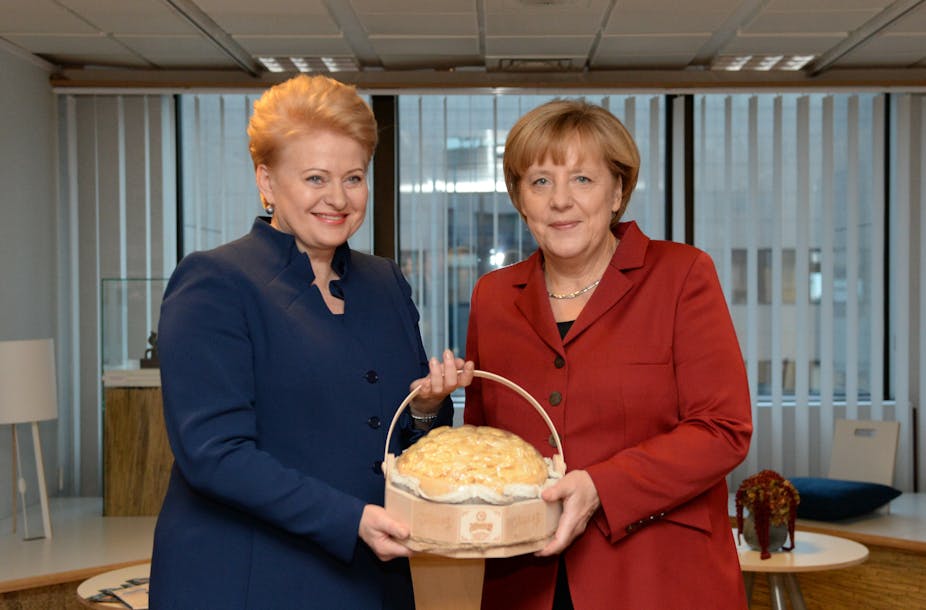Lithuanians will vote in the EU Parliamentary elections on the same day as the country holds its second round run-off vote in the presidential election. In the first round, which was held on May 11, the non-aligned incumbent president, Dalia Grybauskaitė, narrowly missed on on winning an absolute majority, although with 45.89% she was way out in front of other candidates. Her nearest rival was Zigmantas Balčytis, of the Social Democratic Party of Lithuania (LSDP) who won just 13.6% of the vote.
Most importantly the fact that Lithuanians will also be voting for their next president should raise the turn-out from the meagre 20.98% who voted in the EU elections in 2009. More than 50% of eligible citizens are expected to cast their votes in both polls.
Lithuania has a “semi-presidential” system whereby the president is the head of state, while legislative power is vested in the prime minister, who at present is Algirdas Butkevičius, a member of the LSDP which is part of the ruling coalition in Lithuania’s parliament or “Seimas”.

Competition between two presidential candidates may also influence voting in the European elections. The fight between Balčytis and Grybauskaitė could encourage increased polarisation between the left and the right – Lithuania’s governing coalition and the opposition.
Grybauskaitė presents herself as non-partisan, but she draws a great deal of her support from parties that make up the right-of-centre parliamentary opposition: the Liberal Movement of the Republic of Lithuania (LRLS) and Homeland Union-Lithuanian Christian Democrats, (TS-LKD). She is usually portrayed in the media as a right-leaning politician. All LSDP’s partners in the governing coalition – Order and Justice, the Labour Party, Electoral Action of Poles – support Balčytis.
Lithuania has 11 seats in the European Parliament and the LSDP is expected to win the majority of them.
Since the country became a full member of the European Union (EU) in 2004, Lithuania has consistently emerged as one of the most positive members in terms of people’s trust in the EU and it’s institutions. There is no really Eurosceptic party and the issue has remained marginal in political discourse.

While trust the in EU has fallen Europe-wide, according to the more recent Eurobarometer survey last year, 52% of Lithuanian respondents expressed confidence in the EU, placing it equal third with Malta and Poland.
Scepticism about the euro
But while Lithuanians approve of the EU, some aspects of Europe are more popular than others. Only one in ten Lithuanians wants the euro, for example and as Lithuania approaches its planned date for joining the euro – January 1 next year – the debate over it is growing gradually more intense.
The Order and Justice party is now demanding a referendum on membership of the euro, while Electoral Action of Poles in Lithuania, part of the ruling coalition openly declares that introduction of euro would not be a good decision at the moment. The performance of these parties in the election for the European Parliament will be an indicator of how this issue plays in the minds of the electorate.
…rather than Euroscepticism
If there is Euroscepticism, it is more strongly pronounced among older voters and marginal parties. In the latter half of 2013, two small parties: the Lithuanian Peasant and Greens Union (LVŽS) which has one seat in the Seinas, and the Nationalist union (TS) which doesn’t hold any seats, started collecting signatures in order to prompt a referendum that would prohibit selling Lithuanian land to citizens of foreign countries.
This would put Lithuania at odds with EU law governing land ownership and investment – and the campaign failed to attract support from the major parties. Despite raising the necessary 300,000 signatures, the campaign has not done much to boost the very marginal popularity of Lithuania’s very small Eurosceptic contingent.

